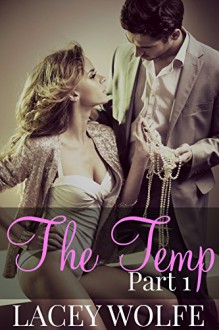
If Courtney Milan published her grocery list, I'd probably read it. She's at the tippity-top of my auto-buy list. She's smart, funny, and unabashedly feminist: totally my catnip.
Her Every Wish is a novella about Daisy, who was introduced in Milan's last novel, Once Upon a Marquess. One thing I loved about this novella is that it isn't set in the glittering ballrooms of the ton at all, but rather in the seedy, working-class neighborhood where Daisy shares a room with her aging mother. This gives us a view into a part of London that the historical romance genre rarely visits, and it's refreshing.
Daisy works in a flower shop and dreams of opening her own mercantile, but no one takes her ambitions seriously because she's a woman. Some time ago, Daisy had a liaison with Crash, but it ended badly in a way that isn't revealed until well into this novella. Crash is initially portrayed as a flirt and a cad, but as his character is revealed, it's clear he's not that simple. Crash is descended "from a long line of sailors and dock whores" and doesn't even know what race he belongs to, which is also a refreshing contrast to the typical aristocratic lords so much more common as romantic heroes.
However, this story frustrated me because it revolves around a Big Misunderstanding trope. Daisy and Crash went to bed together, then one said something the other misunderstood, and suddenly their great love was over before it began. Big Mis stories generally don't work for me because they require the main characters to be poor communicators, and when you have characters as smart as those drawn by Ms. Milan, it's frankly hard to believe they could be so thickheaded.
Her Every Wish also fell a little flat because of its structure. Crash and Daisy went to bed together and had a falling out, but the reader never gets to see the buildup of their relationship -- how they met, what attracted each to the other, how Daisy put aside her maidenly modesty and decided Crash was worth her virginity, what made Crash fall in love. Without that backstory, it's hard to feel invested in the rekindling of their relationship during the novella.
Finally (and this is a very minor quibble), I am not a stickler for historical accuracy by any means, but lately Milan's witty dialogue sometimes strikes me as so anachronistic that it yanks me out of the story in a way I find jarring. For example, there was a variation on the phrase, "Come to the dark side. We have cookies," that made me roll my eyes. If this sort of thing makes you crazy, this may not be the book for you.

 Log in with Facebook
Log in with Facebook 










